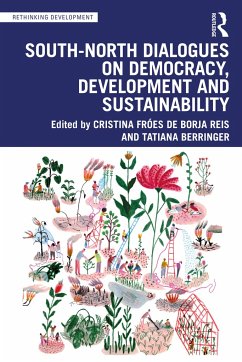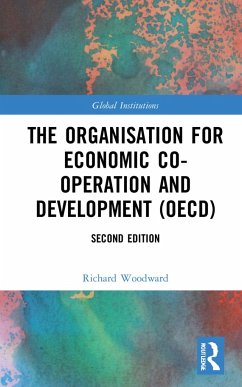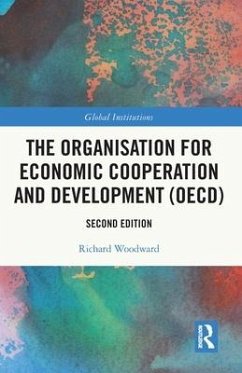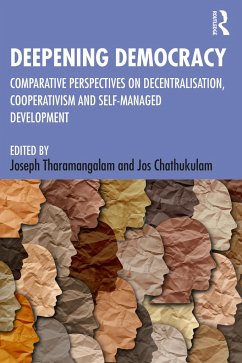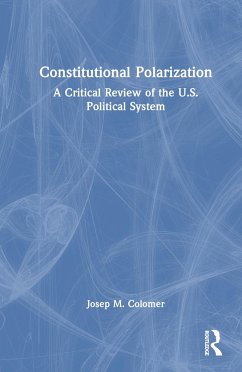
Why International Organizations Hate Politics
Depoliticizing the World
Versandkostenfrei!
Versandfertig in 6-10 Tagen
43,99 €
inkl. MwSt.

PAYBACK Punkte
22 °P sammeln!
Building on the concept of depoliticization, this book provides a first systematic analysis of International Organizations (IO) apolitical claims. It shows that depoliticization sustains IO everyday activities while allowing them to remain engaged in politics, even when they pretend not to.Delving into the inner dynamics of global governance, this book develops an analytical framework on why IOs "hate" politics by bringing together practices and logics of depoliticization in a wide variety of historical, geographic and organizational contexts. With multiple case studies in the fields of labor ...
Building on the concept of depoliticization, this book provides a first systematic analysis of International Organizations (IO) apolitical claims. It shows that depoliticization sustains IO everyday activities while allowing them to remain engaged in politics, even when they pretend not to.
Delving into the inner dynamics of global governance, this book develops an analytical framework on why IOs "hate" politics by bringing together practices and logics of depoliticization in a wide variety of historical, geographic and organizational contexts. With multiple case studies in the fields of labor rights and economic regulation, environmental protection, development and humanitarian aid, peacekeeping, among others this book shows that depoliticization is enacted in a series of overlapping, sometimes mundane, practices resulting from the complex interaction between professional habits, organizational cultures and individual tactics. By approaching the consequences of thesepractices in terms of logics, the book addresses the instrumental dimension of depoliticization without assuming that IO actors necessarily intend to depoliticize their action or global problems.
For IO scholars and students, this book sheds new light on IO politics by clarifying one often taken-for-granted dimension of their everyday activities, precisely that of depoliticization. It will also be of interest to other researchers working in the fields of political science, international relations, international political sociology, international political economy, international public administration, history, law, sociology, anthropology and geography as well as IO practitioners.
Delving into the inner dynamics of global governance, this book develops an analytical framework on why IOs "hate" politics by bringing together practices and logics of depoliticization in a wide variety of historical, geographic and organizational contexts. With multiple case studies in the fields of labor rights and economic regulation, environmental protection, development and humanitarian aid, peacekeeping, among others this book shows that depoliticization is enacted in a series of overlapping, sometimes mundane, practices resulting from the complex interaction between professional habits, organizational cultures and individual tactics. By approaching the consequences of thesepractices in terms of logics, the book addresses the instrumental dimension of depoliticization without assuming that IO actors necessarily intend to depoliticize their action or global problems.
For IO scholars and students, this book sheds new light on IO politics by clarifying one often taken-for-granted dimension of their everyday activities, precisely that of depoliticization. It will also be of interest to other researchers working in the fields of political science, international relations, international political sociology, international political economy, international public administration, history, law, sociology, anthropology and geography as well as IO practitioners.






